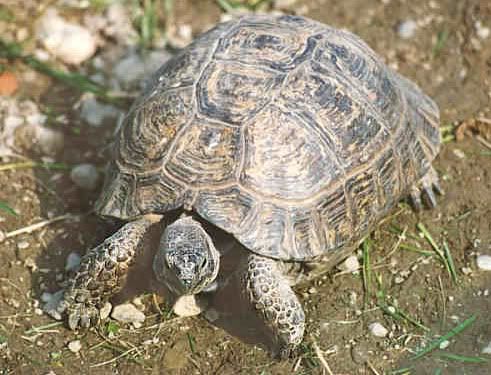A local club member is selling his group of Greek tortoises. These have four toes on the front legs, and most of them are nearly entirely black or dark, lacking patterns. They are also rounder than most Greeks seem to be. I should have taken pics.
He says these Greeks are unique to Armenia, Azerbaijan, and the northwestern tip of Iran, and that they are no longer imported into the U.S. He has three males and three females. These are big torts. Males seem to be about 7 inches plus or minus a half inch. The females are all 8 inches plus, with the largest female looking to be just under 10 inches.
Were these commonly imported at one time? And is it true they're no longer imported? He actually wants quite a bit of money for them, even considering the fact that they are breeding size. I'm trying to gauge the scarcity of these greeks in the U.S. to see if it justifies the price tag.
The pic attached below is NOT an actual pic. I did an internet search, and it looks nearly identical to the ones that I saw.

He says these Greeks are unique to Armenia, Azerbaijan, and the northwestern tip of Iran, and that they are no longer imported into the U.S. He has three males and three females. These are big torts. Males seem to be about 7 inches plus or minus a half inch. The females are all 8 inches plus, with the largest female looking to be just under 10 inches.
Were these commonly imported at one time? And is it true they're no longer imported? He actually wants quite a bit of money for them, even considering the fact that they are breeding size. I'm trying to gauge the scarcity of these greeks in the U.S. to see if it justifies the price tag.
The pic attached below is NOT an actual pic. I did an internet search, and it looks nearly identical to the ones that I saw.


